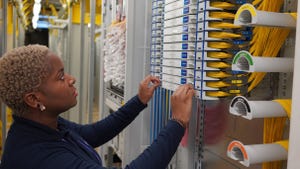India Approves In-Flight Connectivity, WiFi Boost
Indian authorities have approved plans for in-flight connectivity services, an expansion of WiFi hotspots and the establishment of a telecom ombudsman.

Indian authorities have given a green light to the use of data and voice services on flights over the country's airspace.
The approval is one of several recommendations from India's Telecom Commission, a part of the Department of Telecommunications , and follows proposals made by the Telecom Regulatory Authority of India (TRAI) .
Following the latest move, India's government is to work on developing a licensing framework for so-called "in-flight connectivity providers." The entire process should take around three months, it says, and the in-flight connectivity providers will be required to pay an annual license fee of just 1 Indian rupee, initially. Internet connectivity will be available only when a flight is at an altitude of at least 3,000 meters.
Along with the in-flight services, the Telecom Commission has also approved TRAI's recommendation to boost the network of public WiFi hotspots. The government, accordingly, is to create a number of Public Data Offices (PDOs), which will offer small data packs for a starting price of just INR2. These PDOs will function in a similar way to Public Call Offices (PCOs), which made telecom services accessible to all sections of Indian society a few years ago.
The move follows soaring usage of data services in the last year. The number of mobile Internet users hit 456 million in December 2017, according to the Internet and Mobile Association of India (IAMAI). It is likely to reach 478 million by June.
For all the latest news from the wireless networking and services sector, check out our dedicated Mobile content channel here on Light Reading.
India currently has around 38,000 WiFi hotspots, but the Department of Telecommunications hopes to boost this number to 500,000 by the end of the year. It is unclear whether private-sector operators or only state-backed telcos will play a role in this expansion. Nevertheless, the government hopes WiFi hotspots will make data services accessible to more of the population. They could also generate employment opportunities.
Besides approving in-flight and WiFi plans, the Telecom Commission has also backed plans to create a telecom ombudsman role to address the grievances and complaints of consumers. Under proposals, service providers would need to address consumer complaints within a given timeframe. Failure to do so would give the consumer the right to seek redress from a new forum set up for that purpose. Should this approach also fail, the consumer would be entitled to speak with the ombudsman.
— Gagandeep Kaur, contributing editor, special to Light Reading
Read more about:
AsiaAbout the Author(s)
You May Also Like




.jpg?width=300&auto=webp&quality=80&disable=upscale)







